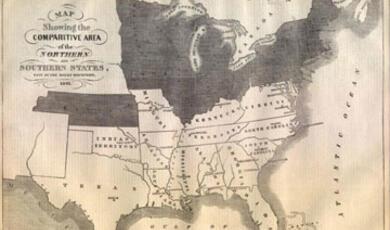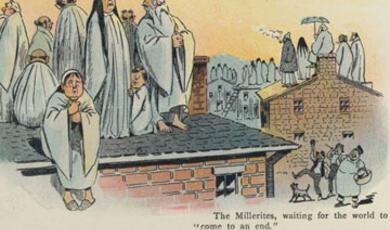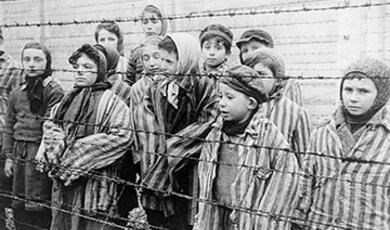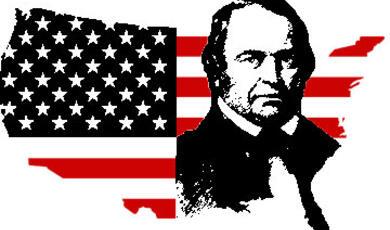What did eighteenth-century men want?
Share
- Details
- Text
- Audio
- Downloads
- Extra Reading
Such is the gloom that surrounds settling down today and the glamour that attaches to mature bachelor freedom, it is hard to imagine that there was a time when marriage represented the summit of a young man's hopes.
Forty years after the sexual liberalization of the 1970s, it is easy to forget that only marriage promised true sexual fulfillment for Christians, turning furtive or frustrated boys into fully-realized men. Marriage was the only acceptable framework for children, through whom men made a claim on the future, but also confirmed their potency. Virility was one of the most celebrated masculine qualities. The father who led a handsome family into church radiated both an air of commanding respectability and a glow of unmistakable sexual success.
Marriage promised physical excitement. Two days before his marriage in January 1754, 33 year old Josiah Wedgwood positively frothed with anticipation of 'the blissful day! When she will reward all my faithful services & take me to her arms! To her Nuptial bed! To - Pleasures which I am yet ignorant of'. He took the precaution of working over-time the week before his wedding to clear time to enjoy his bride uninterrupted. Marriage was a sexy prospect.
In the 17th and 18th century, bachelorhood was a temporary and unprestigious state best solved by marriage. The Batchelor's Directory of 1694 was unequivocal - 'Matrimony - what can better agree with man and more exactly relate to his necessities?' Even men who felt no attraction to the opposite sex had to marry to gain the full benefits of adulthood.
There were even proposals to levy a tax on mature bachelors as a deterrent and a punishment for their evasion of the burden of domestic government and social provision. Perpetual bachelors were the 'vermin of the State' pronounced the Women's Advocate stonily. 'They enjoy the benefit of society, but Contribute not to its Charge and Spunge upon the publick, without making the least return'.
We associate the history of home and private life with women, but what did house and domesticity mean to men? More than you might think argues Professor Amanda Vickery.
This is the 2010 Joint Royal Historical Society/Gresham College Annual Lecture. The other joint lectures can be accessed here:
2012 - Why the Enlightenment still matters today by Professor Justin Chapman
2011 - The Rural Past and Urban Histories, 1881 - 2011 by Professor Alun Howkins
2009 - The Institutionalisation of the Arts in Early Victorian England
by Charles Saumarez Smith
2008 - History, Science and Religion by Dr Allan Chapman
2007 - The fabrication of medieval history by Dr Simon Thurley
2006 - The Curse of the Poke Bonnet: Television's Version by Joan Bakewell
2005 - Travels in Time: History and identity in today's world by Michael Wood
2004 - Presenting unwanted histories by Dr Gareth Griffith
Download Text
11 November 2010
What did Eighteenth-Century Men Want?
Professor Amanda Vickery
One of the things that has always struck me about British culture and advertising today is how negative the view is of commitment and how glorified the bachelor has been, at least since the 1950s. I think you get a strong sense of who this ‘ideal bachelor’ is from advertising copy: he would be white-water rafting, full of testosterone, living on espresso and evading the dead hand of commitment. All the while, his more lily-livered friends are succumbing to their girlfriends, to the tick of their body-clocks; they have given up and been domesticated. However, what really struck me when I read 18th Century Mens’ diaries is that the reverse is the case for that century. Nowadays I think it is hard to imagine that there was ever a time when marriage was the summit of a young man’s hopes.
In the 17th and 18th Centuries, bachelorhood was supposed to be temporary. It was an unprestigiousstate best solved by marriage. The Bachelors’ Directory of 1694 was unequivocal: “Matrimony – what can better agree with a man and more exactly relate to his necessities?” Even men, therefore, who felt no attraction to the opposite sex had to marry to gain the full benefits of citizenship.
Young bachelors get away with more – they are young blades, they are allowed a few years’ naughtiness, but the dyed-in-the-wool bachelor was another beast altogether. He was sometimes a figure of affectionate humour, but he was more often seen as unrealisedin his masculinity, at the mercy of his impulses.
This is “The Enrag’d Batchelor”, a classic of the genre. These old bachelors are always the same: they always have weedy, withered legs, and they are always being presented by their illegitimate children. The wages of sin are always being delivered to them. There is a current of sustained mockery.
There were even proposals to levy a tax on bachelors, as a deterrent and a punishment for their evasion of the burden of domestic government. Perpetual bachelors were the “vermin of the state,” pronounced The Women’s Advocate, stonily. “They enjoy the benefit of society, but contribute not to its charge, and sponge upon the public, without making the least return.” The bachelor was not a fully-fledged man.
However, not all men were in a position to marry, even if they wanted a nice wife, because in Britain, marriage meant setting up your own home. You might take this for granted, but it was highly unusual. In Southern Europe or China, a married couple was simply absorbed within the parental unit, and young brides were ruled by their mother-in-law. In Eastern Europe, multiple families tended to live together, but sharing a hearth was anathema to the British idea of marriage. No respectable Anglo-Saxon marriage could go forward without an independent establishment. As a result, there was always a sizeable majority of people who simply could not afford to wed; no home meant no wedding bells. So, British couples only married when they had saved sufficient capital or felt confident enough about cash flow to set up an independent home, and therefore the average bride and groom are much older than you might expect – over 27 for men, and 25 for women, before 1750.
Of course, if you think about it, that means there is a long interlude of at least ten years between puberty and marriage, and this amidst a fierce religious taboo against fornication and without reliable contraception. As a result, how to manage young men in the interim was an issue for authority. The Inns of Court, the Army barracks, Oxford and Cambridge Colleges, were institutions custom-designed to cater to the domestic needs of bachelors, with all their hot meals and clean linen sorted for them. The itemised college bills that I have found are fascinating because they expose and price all the services young men get from home for nothing. Rather tragically, you can see that tuition only accounts for a mere 15 shillings! The steward is a little better off, with 17 shillings.
Young men flew free of the nest, fuelled by family money, but in the letters that men write home, you get a picture of what they consider their domestic needs to be, and who can best answer their questions. They still wrote home to mother for help with mysterious practicalities. There is often a “PS to Ma” after a long letter to Pa about the money, usually regarding sheets and underclothes. The Oxford scholar John James wrote to his father in 1778: “I beg to be informed by my mother, to what uses I must apply the napkins and to what the towels.” Basic matters were puzzling to him, needing mother to tell him “…how long a pair of sheets must be used before they are washed, and what price I must set on a stock if my laundrist should lose one”.
We are always told that it is spinsters who longed for the security of marriage and who made a career out of catching a good provider - a la Bridget Jones - but the bachelors’ quest for a wife tends to get forgotten. In fact, I have found that bachelor longings echo plaintively through the archives.
The diary of London law student Dudley Ryder gives poignant insight into the frustrations of the young and the callow in early-18th Century London. Ryder was the son of a Cheapside line draper and he eventually rose to become a judge. His early diary records, in shorthand, his bachelor routine as a law student at the Middle Temple between 1714 and 1715. You would never guess that middle-aged success was on the cards for this aimless flâneur, who seems to spend his time with a bit of daily prayer and reading, but mostly by lying down, leafing through his tattlers and yawning. However, he was a young man of his moment: he collected prints, he played the flute and the bass viola, he employed a dancing master, and he liked to promenade about St James in his “best clothes and lace ruffles.” He noticed that he carried himself “with a very gentile and becoming air” when he glimpsed his reflection in the shop mirrors of the new Exchange. He was no stranger to the thrills of narcissism.
Dudley Ryder had more opportunity than most, I think, to encounter young women, coming as he did from a very respectable linen draper family in Hackney, but he was bashful in female company and he did not make an advantage of the access he had. His conversation failed to charm and he suspected he made an idiot of himself in the effort, envying men that were successful in their addresses to the ladies; he was plagued by juvenile insecurities. He rather worried that his breath smelled but he lacked the courage to ask his mother to sniff it for him. He even fretted that he might prove impotent on the big night and that any wife would be unsatisfied with him. Ryder regarded women with a churning mixture of fascination, disapproval, desire and alarm.
What really struck me about his diary is his obsession with trying to balance the burden and the benefits of marriage. On the one hand, he thinks that the miseries and inconveniences of matrimony would be much greater than the advantages, but on the other hand, he still could not imagine full happiness without a spouse, because only through marriage could he make a legitimate claim on posterity. “I cannot be uneasy to think that my life shall terminate with myself. The having of children is a kind of continuance and prolonging life into future ages and generations.”
All things considered, Ryder harboured a strong inclination towards marriage; not, he claimed, from any desire to know a woman in bed, but from a natural tendency in favour of that married state. The claim that lawful sex is just a minor benefit of wedlock is probably belied by his passionate dreams about wedding nights. His sentimental and sexual hankering after marriage was powerful, if shot through with panic and ambivalence. He fell into transports of emotion at the thought of “a pretty creature concerned in me, being my most intimate friend, constant companion, and always ready to soothe me, take care of me and caress me”. For all his mutterings, Ryder longed for an excellent, prudent, discreet wife to wipe his brow, share his bed and adore him. However, it was not until 1733, when he was 43 and MP and Solicitor General, that he finally married the daughter of a rich West Indian merchant. In the meantime, he had to make do with aimless flirtations and entanglements with prostitutes that always ended, literally, in Ryder’s tears.
Today, bachelorhood is seen as a period of glorious, buccaneering freedom, to be extended for as long as possible, but 18th Century diaries offer a different picture altogether. They show young men full of yearning and frustration, fretfulness and guilt. One diary I found in Hull is a melancholy, and accidentally hilarious testimony of romantic failure.
John Courtney was a minor Yorkshire gentleman, an amateur musician, and a man about the gentile town of Beverley. Beverley is a beautiful town with a medieval minster. It is the hub of the East Riding of Yorkshire and it had its own assembly rooms, to which our hero subscribed. Courtney’s diary shows him out and about at all the cultural events of the provincial season. He played the organ and the harpsichord, composed cantatas and country dances, considered himself au courant with art and literature, and was a very natty dresser.
When the diary begins, his studies are behind him, his inheritance is in hands, and he is living with his widowed mother in Walker Gate in Beverley. He was highly respectable. He has got a town house with an organ and he has even got a space set up for dancing. So, the only thing that is missing is a fitting wife. Cumulatively reading the diary, what comes to mind is a mildly conceited young man, thoroughly domesticated, who could be trusted to sit demurely in the parlour with anyone’s daughter, subjecting her to nothing more scandalous than a few verses of plaintive song.
Nonetheless, he is a man on a mission: the governing preoccupation of his twenties and thirties was finding a well-endowed bride, and he spent almost a decade on this great task, having a go with any eligible maiden to whom he was introduced. He had plenty of access to respectable young women and his affairs proceeded at racehorse speed. Generally, the period from first glance to proposal barely covered a month. He was rejected on eight occasions. His first love affair set the pattern.
Turning 27, he had already passed the average age of marriage for men. In York, on February 3rd 1761, Courtney heard a Miss Newsome’s fine singing and playing at a domestic party. Two days later, Courtney called on her at home to give her some music. That same evening, he sat behind her at a play, plied her with sweetmeats and “handed her out”. When she sang at the tea party the next Saturday, he said: “I was confirmed in my resolution.” On Thursday, February 19th, he repeated his officious little attentions at the theatre: “I daresay the young lady may begin to guess that I love her.” On Friday, he managed to dance with the maiden, and on Saturday, he handed her into the coach. These are all very conspicuous manoeuvres and no one could have been in any doubt about his goal. On Wednesday, 26th February, he declared his suit to the family, returning the next day to make his declaration to the girl, but on March 1st, the aunts ambushed Courtney after a tea party and told him to desist. After the frankness of his embassy, the tacit approval of all parties, and the attractiveness of his credentials, he was amazed. As he says in his diary: “In short, I was thunderstuck!” The afterglow of the affair lingered another fortnight. Miss Newsome returned his music, the ladies reiterated that there was no hope, and Courtney had a poignant opportunity to play one last bittersweet air, “Ariadne, and soft invader of my soul”, to his ladylove. “And so ended the first such affair I was ever engaged in,” he writes.
In the spring of 1762, turning 28, Courtney met 18 year old Mary Smelt, of Bedales, at the Beverley assembly, and he was smitten. Then he met her at tea parties of young ladies and he delighted in her playing on the spinet. Their first pas de deux took place in March, at a Sunday afternoon tea party in Beverley, when he wrote a country dance for her. She gives the name of “Whim” to the dance, but then the flirtation fizzled out.
He had two more abortive courtships, then he reverted back to Miss Smelt, but his uncle doused the suit, saying that Miss Smelt’s fortune was too small.
Courtney’s next attempt took place in Harrogate, where he and his mother befriended a family from Newcastle. On September 3rd 1764, he danced with the daughter, Miss S, “who made an entire conquest of my heart”. One dance at the Green Dragon was enough to reveal her to be “the most amiable and accomplished woman”. One more public ball was sufficient for formal courtship - “I now show myself attached” - and a ride en familie the only further preamble to a proposal of marriage made via the parents. On September 10th, he was rejected. The whole skirmish had lasted a week.
By his early thirties, he had tried his practised gallantries on five more women, to no effect. The exact reasons why he was such a repeated failure on the marriage market is a bit obscure because, after all, few gentlemen of means are unable to marry, if only they have got the humility to address themselves to a young lady who will have them. But Courtney always aimed high: he wanted prettiness and a certain amount of youth and birth and fortune, so it is possible that he was aiming too high. His respectability was invincible, but perhaps it was not enough to offset his smallpox scars. Also, for all his decorousness, I think Courtney was deficient in savoir faire – more Mr Collins than Mr Darcy. I get the impression that Courtney performed his romantic exercises in a rather ponderous manner. I think he was intending to be debonair, but he came across as pompous and wooden. He was probably rather ridiculous.
Eventually, his smarting eyes settled again on Miss Smelt. Now 34 years old, he showed a bit more resolution, and upon receiving a doubting letter from his sweetheart, he galloped over to Hull in half an hour, “had an interview with my dear Miss Smelt and made up all matters to our mutual satisfaction and removed all her scruples.” At last, in June 1768, the couple were married, both in white, in Hull, and retired to a wedding tea at home in Beverley. “N.B. We used our best agate knives, reserved for my wedding day.” After supper, the servants came in to watch the couple dance a minuet and the new Mrs Courtney played on the harpsichord for some country dancing. Soon after, “the bride retired to bed, in the best chamber, and I followed.” He purchased handsome New Bigan House in his own grounds, where Mary Courtney bore him ten children. His prayers were answered in full.
My next case study is rather better known. I am going to briefly look at the autobiography of Anthony Trollope. Of course, it is true that Trollope was technically Victorian, but the 18th Century is getting longer all the time! When you think of Trollope, you think of his late-Victorian heyday, but one forgets that he had a protracted boyhood in the 1830s, before the accession of Victoria. This sneaks him in to my study.
Trollope’s account of his awkward experiences in the 1830s is as crafted as any of his fictions, and it triumphs in presenting the misadventures of a callow but rather endearing character, with a dash of David Copperfield and the vim of Tom Jones. Obviously, he heightens the young man’s dilemma to hilarious effect, but his sketch still encapsulates the dilemma of the bachelor across my whole period, which, as you can see, is a long one.
“Between his desk and his scanty lodgings, where was a chap to find some domestic cheer?”
Our hero inaugurated his manhood at a desk in the General Post Office in London in 1834. Trollope’s father was a failed lawyer who took on a farm that ruined him, and it was his gallant mother who kept the household afloat, with her constant writing. At the end of a very erratic education in Winchester and Harrow, as well as studying languages in Bruges, young Anthony was still gauche and directionless. “I was an idle, desolate hanger-on, that most hopeless of human beings, a hobbledehoy of nineteen, without any idea of a career, or a profession, or a trade.” But it was a young man’s mission to quit the household and make shift for himself. “I could do nothing but go and leave them. There was something that comforted me in the idea that I need no longer be a burden,- a fallacious idea as it soon proved.” The answer was the junior clerkship at the GPO.
If you read over Trollope’s fiction, you can see that his thoughts on the charm of family life for men, as well as the truly dreadful dinginess of domesticity on a budget, are carefully developed. He is attuned to the vacillations and the vulnerabilities of young men on the make. Listen to one of his unworthiest lovers, the caddish civil servant, Adolphus Crosbie, on the verge of matrimony: “He must give up his clubs and his fashion and all that he had hitherto gained, be content to live a plain, humdrum, domestic life, with £800 a year, in a small house full of babies... Could he be happy in that small house, somewhere near the New Road, with five children and horrid misgivings as to the baker’s bill?”
He could not.
Trollope often made a comedy of those be-slippered bachelors who dodged matrimony altogether, the better to husband their cigar funds, and he warned of the dangers of growing old in selfishness amidst “the flesh-pots.” “He had seen what becomes of the man who was always dining out at sixty.”
However, on the other hand, I think he gives some dignity to those dowdies who never had time to strut in a good suit before the babies came and then had to live thereafter on an unrelieved diet of fireside chat and scrag-end of neck. He was fondly sympathetic to the embarrassments entangling clerks in lodgings, but then he knew whereof he spoke. “My salary was to be £90 a year, and on that I was to live in London, keep my character as a gentleman, and be happy.” Looking back, in 1873, aged 58, he considered the task an unfeasible one: “a feat of husbandry requiring the courage of a hero, the self-denial of a martyr, and much more financial knowledge than generally falls to the share of a Chancellor of the Exchequer.”
At any rate, living a jolly life upon £90 per annum proved impossible for Trollope in the 1830s, and he was strangled by debt for his whole Post Office career. He took rooms on Northumberland Street, in Marylebone, looking out on the workhouse, “a most dreary abode”, and apart from breakfast, which he got on credit, no meals were served in his lodgings and he often lacked the cash for dinner. “I had no friends upon whom I could sponge regularly. Out on the Fulham Road, I had an uncle, but his house was four miles from the Post Office, and almost as far from my own lodgings.” He missed his Ma and he longed to be adopted at some surrogate fireside. “I belonged to no club, and knew very few friends who would receive me into their houses... There was no house in which I could habitually see a lady’s face and hear a lady’s voice.” His companions seemed as bereft as himself, so access to the sisters of his friends was non-existent. Without the means of a man about town or access to a sisterly cosseting, he shivered in a domestic vacuum.
Cruikshank’s “Dandies at Tea” (1818) gives a good sense of a domesticity which is all front. There they are, incredibly well-dressed, pretentious, sharing their tea. But look at their nasty, ragged linens. Linen is the sign of a virtuous household and a mother’s love. Think about those mothers receiving letters from college about their sons’ dirty sheets.
Trollope fell into unsavoury company, including liaisons with tarts and reliance on a shady moneylender. He was, rather hilariously, always in trouble, most strikingly so when he found himself engaged to be married against his will. “The invitation had come from her, and I had lacked the pluck to give it a decided negative.” Despite keeping his head down and ignoring the girl’s letters, he suffered a whirlwind in the shape of the mother, who bore down on him at the GPO, declaiming, “Anthony Trollope, when are you going to marry my daughter?!” Seldom have a young man’s troubles been captured with such economy. “We have had all had our worst moments, and that was one of my worst,” was Trollope’s gloss on the subject.
In the end, aged 26, in 1841, he landed a better paid job as an itinerant surveyor’s clerk in Ireland. With his luck on the turn, and emerging from his protracted boyhood, in 1844 he met and married the daughter of a Rotherham bank manager, and at last, his late, budding career began to bloom. Only in his late-twenties and through marriage did Trollope, by his own reckoning, “grow into the full dimensions of a man”. Marriage was decisive for manhood. Grooms resigned their lodging keys and their fellowships and supposedly bid farewell to the pie shop, the alehouse, the turf and the trinket shop. This was the moment when young men took up the burdens, as well as the dividends, of patriarchy.
There are many male testimonies to the experience of marriage as an apotheosis. When 27 year old Thomas Hittingford, a tutor and cleric, was at last able to marry in 1812, he felt his life was about to begin at last, and nearly 30 years later, he remembered the glory of that moment: “Life was then fresh. My imagination was excited with pleasurable ideas of what was coming. Everything seemed to smile around me. The horizon had not a single cloud for me, nothing but a delightful anticipation of happiness and independence.”
Independence did not mean rugged isolation and an escape from the petticoats, but it meant the ability to found one’s own household and fill it with underlings. But every general needs lieutenants. Mobility was the mark of an independent man. It was the proficient housekeeper, posted on the threshold, who gave a gentleman peace of mind as he rode away, the axis around which his freedom revolved. Almost any man who went out to work liked to leave a woman behind on garrison duty. Without a mistress at the helm, the households of widowers were especially vulnerable. They wobbled like the proverbial house of sticks.
Take the case of Matthew Flinders, a Lincolnshire surgeon and male midwife. Soft-eyed, dark-haired and amiable, Susanna Flinders was reckoned clever in housekeeping and managing children, which is just as well because her husband was always out, riding about Lincolnshire with his forceps, trying to establish his midwifery practice in the 1770s and 1780s. Every year, he totted up his life savings and he was fixated on the burdens which he felt he hefted alone: “We have naught but my industry to depend on.” When, in November 1776, “Death made his first approach in our little family, taking from us our second son, Jacky,” Flinders remained practical: “We ought to think of the non-increase of our family as a blessing.” The following July, when Flinders delivered his wife of stillborn daughters, he was relieved: “How kind is providence of God thus to free us from the expense and care of a numerous family, for had all our young ones lived with us, we would scarce have known what to have done with them.” Twin boys, born prematurely in May 1778, survived barely two days and were interred in the same coffin. But again, Flinders acknowledged God’s mercy “for not burdening me with the additional care of more children”. He was not a sentimental man.
However, a catastrophe loomed which would tax his strange equanimity. After a gruelling labour in the winter of 1782, Susanna failed to rally herself and died in the spring. “My tears are plentifully shed each day, and when I’ll gain my peace, I cannot tell. My situation is truly deplorable. I’m unhappy both on my own account and my comfort being gone, but doubly so on account of my five children, two very small and one at nurse.” How was he to attend to his patients and support his motherless offspring? “There appears nothing for me but care and trouble.”
So, in alarm, he does what men always do under these circumstances. He writes post-haste to all his kin, to draft in any available, unmarried women. He writes to his brother to request the support of his niece, and at last, in May, she arrived, but he found the makeshift insufficient. By July 1783, not four months after losing “the dearest and most valuable friend I had on Earth”, Flinders was looking about him for a substitute wife. “I have now to note a circumstance which will perhaps appear somewhat odd in my records, after the real and extraordinary grief which I have manifested for my late valuable partner and whom I shall regret to my latest hour.” He was still pragmatic. He thought it was futile to repine, “as a continual grieving can be of no avail but injurious to me; I begin to be not without hopes of a second marriage.” He wasted no time: “Accordingly, I have pitched on the amiable Mrs E, late Miss E.W. of this place.” A few letters and three visits were sufficient to secure a date for the wedding. “By noting these things, I would by no means have it understood that I have forgot my ever-dear departed friend and wife. God knows I have had yet many bitter hours on her account and I’m not without some fears that it will be impossible for me to be so happy as I have been, but what can I do?!” By New Year’s Eve, he thanked God for having again “the comfort of a kind and bosom friend” and merciful providence for enabling him to lay by 56 pounds, fifteen shillings and eight-pence, despite the year’s extraordinary expenses. Home and family restored to order, he was back on course.
Fifty years later, in the same county, another widower household was compromised by the want of a mistress. Lincolnshire solicitor Benjamin Smith was a childless widower, of very prominent local standing but a rather cold bed. He was rich, an employer, a church warden, and a governor of the local Bridewell Hospital, but for thirteen years, since the death of his wife, he had pursued a liaison with his servant, Mary Newbat, which tortured his conscience. Each sexual encounter was crowned with the froth of guilt. “Newbat came in the eve and sat with me. May I, from this day, earnestly resolve to be different and better and correct in my conduct to her - oh God that I was married.” I think “sitting with her” is a code for quite a lot of activity, but when she rejected him, he was frustrated, morose and still ashamed. “In the evening, Newbat went to bed without coming to me, though she knew I wanted her – oh God that I might be well married.” Every Sunday after church, he was especially depressed: “Oh God that I was not married to some good woman always felt worst on Sundays. I have been much depressed all day by the want of a female companion – oh God, grant my want!”
Benjamin Smith was unusual in the length of his widowerhood. Most widowers remarried very quickly, but he seems to think he was too ill, too feeble in some way. In the end, he decided he could not go on. At last, in the winter of 1819, he proposed to a Miss Grace, and his servant-lover gave notice: “I confess, I think it will be best she should leave before I am married.” Too right!
Forty years after the sexual liberation of the 1970s, it is easy to forget that only marriage promised true sexual fulfilment for Christians, turning furtive or frustrated heterosexual boys into fully fledged men. Marriage is the only acceptable framework for children, through whom men made a claim on the future, but also confirmed their virility. Virility was a highly-prized Georgian quality, and the father who led a handsome family into church radiated both an air of commanding respectability and the glow of unmistakable sexual success. Marriage, quite simply, promised sexual excitement.
Two days before his wedding in January 1754, 33 year old Josiah Wedgewood “fizzed with anticipation of the blissful day when [my wife] will reward all my faithful services and take me to her arms, to her nuptial bed, to pleasures which I am yet ignorant of.” He took the precaution of working overtime the week before his wedding to clear enough time to enjoy his bride, uninterrupted.
A smug, silent complacency settles on most men’s diaries after marriage, but now and then, we get a startling glimpse behind the matrimonial bed curtains. The diary of Edmund Harold, a Manchester wig-maker, now published, is a bit of an eye-opener. 29th of June 1712: “I was very dull all week through drink in morning and copulation etc. with wife.” 24th of August 1712: “I hear Mr Edmonton’s two sermons. I saw all three friends at night. Came and read Sherlock. Did wife four times.” November 1712: “After dressing wig, I took physic. Read Norris on religion. Did wife at four in the morning, finally.” According to the helpful editor of the recently published diary, “Lusty wig-maker Edmund Harold does wife in old-fashioned, missionary, new-fashioned, her on top, and tightly, quickly, in the shop.”
In the eyes of the community, it was husbands and householders like Harold who were fully-fledged, powerful men. Settling down was suffused with possibility and glamour. Trading freedom for responsibility was not without its tensions, yet the intensity of men’s longing for marriage and domesticity is the overriding impression that I draw from their diaries; a desire not just for sex and services, but for a continuity of female companionship and a centred domestic life. At home alone, a man had no domesticity worth the title.
Of course, many, perhaps most, lone men had some sexual experiences outside marriage, but guilt was ever an incubus on their backs. Listen to the desperate preface to Benjamin Smith’s self-loathing diary for 1817: “Grant me the true circumcision of the spirit that my heart and all my members be mortified from all worldly and carnal lust, and may all things obey thy blessed will.” “Oh God that I was married” was his repeated prayer.
Only in marriage could a heterosexual man satisfy both his desire and his conscience. So far removed from 21st Century fears that settling down extinguishes virility, establishing a household was believed to give it a full rein. In marital domesticity, bachelors expected to puff out their chests, lift up their heads and hit their stride.
Thank you.
©Professor Amanda Vickery, Gresham College 2010
This event was on Thu, 11 Nov 2010
Support Gresham
Gresham College has offered an outstanding education to the public free of charge for over 400 years. Today, Gresham College plays an important role in fostering a love of learning and a greater understanding of ourselves and the world around us. Your donation will help to widen our reach and to broaden our audience, allowing more people to benefit from a high-quality education from some of the brightest minds.


 Login
Login







